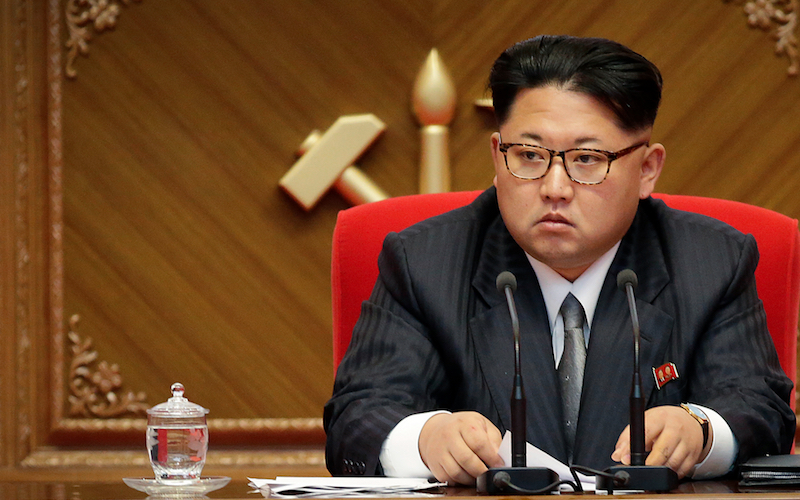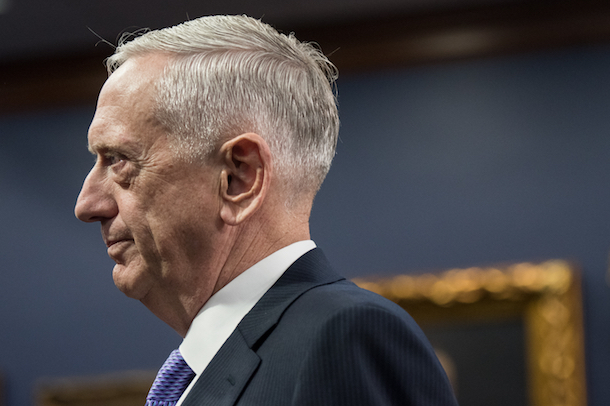
North Korea’s Nukes as “Deterrence” is a False Dichotomy
There is a popular belief that North Korea merely desires a permanent “deterrent” to America and its allies. The implication is that North Korea wants to deter an invasion by America, South Korea, et al, in order to unify the Korean peninsula. The adoption of this mindset is dangerous to our national security, as it is a deeply flawed false dichotomy: aggression is not the only vector of action a militarist regime might hope to deflect. It is possible that Kim Jong Un intends to thwart a reaction to his own future aggressions.
Washington Post’s Adam Taylor recently exemplified the false dichotomy of accepting North Korea’s nuclear ambitions as merely a “deterrent” against ourselves: “Many analysts now say that Kim views nuclear weapons as a deterrence to a foreign military intervention or regime change. Others argue, however, that the eventual aim for Pyongyang is to reunite the Korean Peninsula under North Korean rule, as it tried with a 1950 invasion.”
The two poles of strategic doctrine are insularity and imperialism. The reason that this is a meaningless binary is that nuclear deterrence is a highly effective shield against reactions to aggressive maneuvers. Many commentators make the mistake of presuming that the so called “Nash Equilibrium” is the only end-game of deterrence theory. It ignores the history of Mutually Assured Destruction (MAD), which occurred during the Cold War, and the most basic understanding of North Korea’s current existential project: the reunification of the Korean Peninsula under Juche rule.
The ascendance of the MAD paradigm did not, in fact, lead to an insular, defensive posture by the United States, China, or the Soviet Union. MAD was at least 6 years into status quo when the Warsaw Pact invaded Czechoslovakia in 1968. It was over a decade old when Haile Selassie was deposed in Ethiopia. It was approaching 20 years by the time of the Soviet-Afghan war.
In the meantime, the United States engaged in its own proxy wars and military actions around the world to the chagrin of China and the USSR. The fact is, the shared understanding of MAD made the adventures of the Cold War possible. Both sides were held in check by nuclear deterrence from opposing military ventures directly.
It’s important for politicians, policy makers, and the national security community to start envisioning a potential North Korean deterrent to our ability to react to an invasion of South Korea and the shelling of Japan.
North Korea uses its ample artillery force – which happens to be the largest in the world – to shell South Korea and or Japan in preparation for an invasion of South Korea. The United States faces the dilemma of putting potentially millions of civilians in the homeland at risk due to the deployment of North Korean nuclear weapons if it intervenes rather than retaliating by the typical proxy-war manner we’ve become familiar with. There may come a time- and we may already be there- when there is not the political and military will to risk our citizens to save South Korea and Japan.

This restricts the United States to a limited array of response options. Namely, our hopes would rest on diplomacy or a far-fetched scenario of decapitating the Juche regime’s leadership. In such a scenario of North Korean aggression, it is doubtful whether either of these options would yield results.
Would North Korea Move to Unify?
There is no guarantee that North Korea aims to invade South Korea, bomb Japan, or take any action whatsoever. There is always the possibility that Dovish commentators are correct in assuming that North Korea primarily wants to sit on its fire power and live by its own rules in its own corner of Asia. CNN recently had the following to say about North Korea’s purpose in pursuing nuclear arms: “Pyongyang looks at states like Iraq — where former dictator Saddam Hussein was overthrown by the United States, and Libya — the country’s late leader, Muammar Gaddafi, gave up his nuclear ambitions for sanctions relief and aid, only to be toppled and killed after the US intervened in the country’s civil unrest — and believes that only being able to threaten the US homeland with a retaliatory nuclear strike can stop American military intervention.”
On the other hand, what if an invasion of the peninsula becomes the only viable means of maintaining social order? It’s difficult to say what’s really going on in the Hermit Kingdom at any one point, but there have been indications as recently as a Time article at the end of January claiming that the political class of North Korea is losing confidence in Kim Jong Un. It’s not impossible to imagine a scenario wherein the current regime seeks to front-run a move to undermine it from within by making a move on South Korea. Given the high level of propaganda that North Koreans are subjected to, one could anticipate support among the populace as well as political/military classes in Pyongyang in response to an invasion of South Korea.
Most importantly, it’s important to remember that MAD does not freeze all of the pieces on the grand chessboard in place as soon as it is ensconced. Instead, it encourages maneuvering in the shadows of the specter of nuclear war. How wide a shadow North Korean nukes cast on the peninsula at large remains to be seen.

